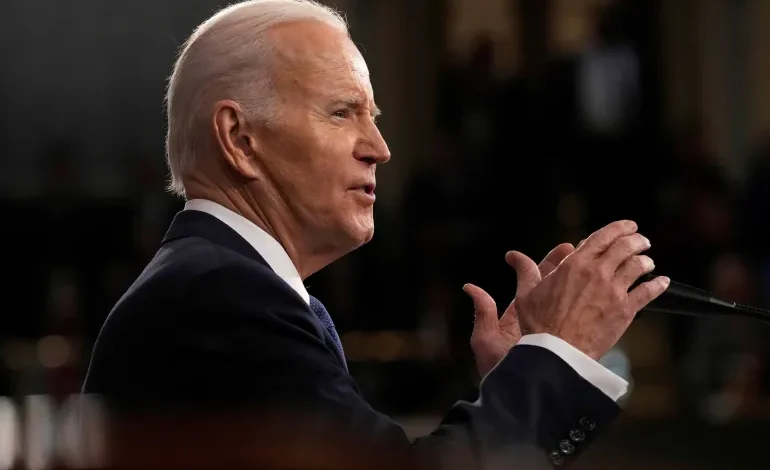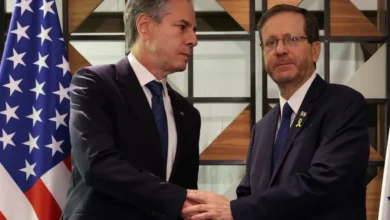US foreign policy reduced to an afterthought
Marwan Bishara

US President Joe Biden’s State of the Union address on Tuesday night was quite upbeat. It was long on domestic affairs and short on foreign policy. It skimmed through the challenges posed by Russia and China and skipped the rest of the world altogether.
It is a first for a US president to reduce the United States’ global role to an afterthought, no less a president who considers himself an authority on foreign policy, or for a commander-in-chief, who has spent so much time, effort and political capital confronting Russia in Ukraine and containing China in Asia. This, therefore, begs the question: Why has Biden chosen to ignore entire continents and countless hot spots where America is directly involved?
According to one theory, Americans are not terribly interested in the rest of the world and foreign policy is an unaffordable luxury at a time of economic hardships and culture wars. Even the elites with greater overseas interests realise that costly investment in foreign policy is becoming a hard sell for the public in the absence of direct national security threats.
Biden understands that, which is why when he first took office, he vowed to end the “forever wars” and promised a “foreign policy for the middle class” – one that serves Americans at large.
But that has proven easier said than done, as Washington has channelled billions of dollars to Ukraine to fight a war that may last years amid warnings from populist Republicans about high inflation, the high cost of living, and high national debt.
Hence the president, who seems keen on pursuing a second term, dialled down the costly global bravado in his speech and instead focused on “made in America” growth and prosperity. His call on Congress to tax billionaires and big corporations and lower the costs of drugs – aligning him with the “progressive left” led by Senator Bernie Sanders – may prove more popular among working and middle-class families than, say, restoring Ukraine’s territorial integrity.
According to another theory, however, there is not much to celebrate in US foreign policy, which is why the president decided to skip the subject altogether. The two theories are not mutually exclusive.
Biden may have embraced Senator Sanders’ prescriptions on the economic malaise, but do not expect him to take his approach on foreign policy, no less in the Middle East, where the US has failed miserably. And disgracefully.
The president rejects Sanders’s stance on the Israeli occupation and the racism of its prime minister, Benjamin Netanyahu. Worse, he embraces the populist right-wing premier as his best friend, and continues to support his government of fascists and fanatics.
But Israel is only one of several failures.There has not been a single foreign policy accomplishment anywhere in the greater Middle East, unless one considers the humiliating and disastrous withdrawal from Afghanistan in favour of the Taliban a success, after 20 years of horrific war.
Truth be told, the Biden administration has helped reach ceasefires or maintain stalemates and status quos from Sudan to Syria, through Iraq, Libya, Palestine and Yemen. But that’s hardly a good thing; in fact, it’s a terrible normalisation of a dreadful situation.
Biden, who promised to put human rights at the centre of his foreign policy, has ignored US clients’ human rights violations and has been supporting strongmen who rule with an iron fist, while the region teeters under violent sectarian and authoritarian regimes.
Washington cannot in good conscience claim to confront Russia and China in the name of democracy, human rights and the preservation of sovereignty, while appeasing colonialism and dictatorship in the Middle East or elsewhere.
It is hypocritical and it is counterproductive.
Half a century after young Senator Biden first visited the Middle East in 1973, the older President Biden seems to view the region through the same prisms he did back then: Israel, oil, and the Cold War with Moscow. But as one exhausted 19th-century saying goes: history repeats itself, the first time as tragedy, the second time as farce.










